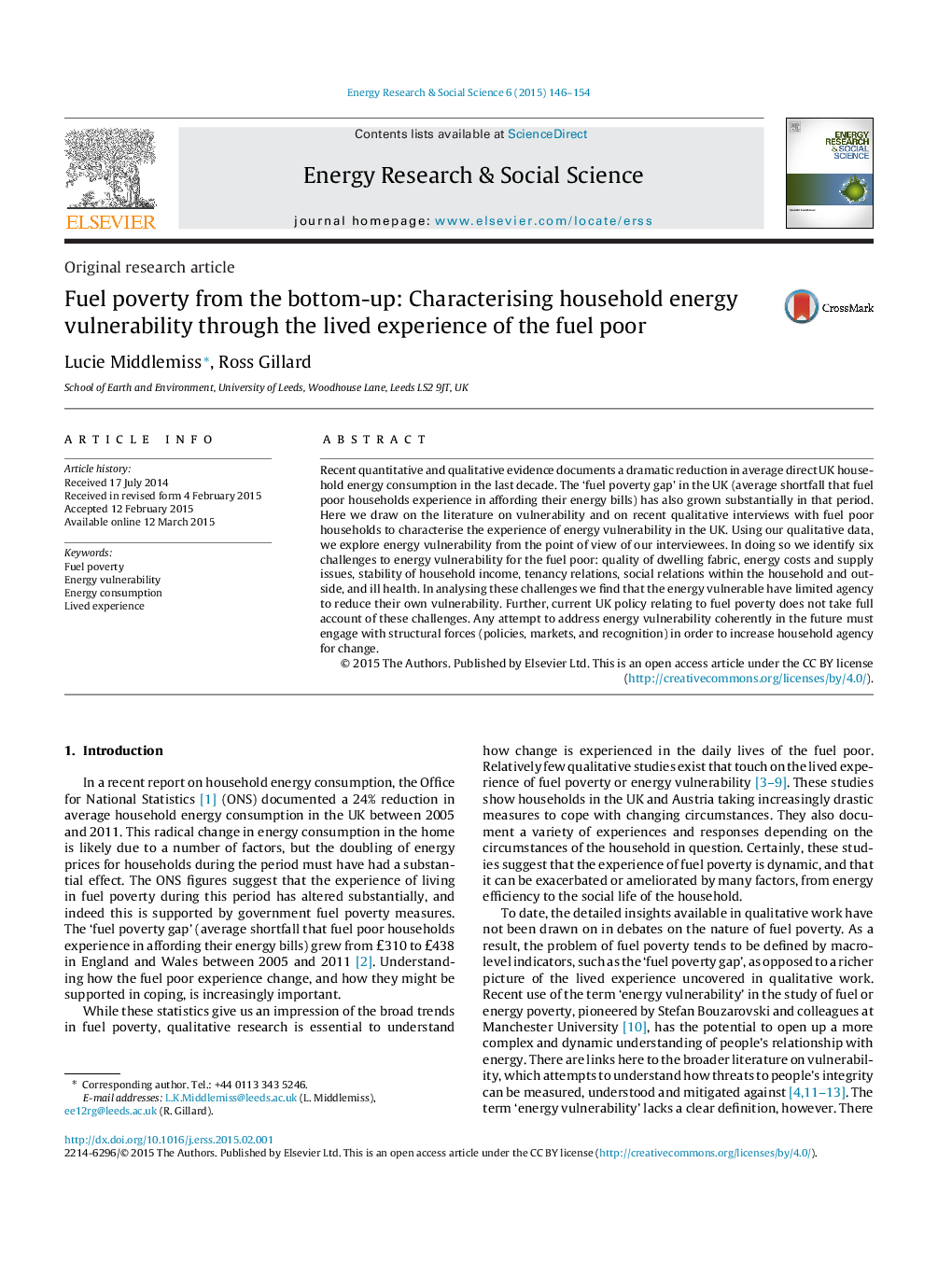| Article ID | Journal | Published Year | Pages | File Type |
|---|---|---|---|---|
| 6558937 | Energy Research & Social Science | 2015 | 9 Pages |
Abstract
Recent quantitative and qualitative evidence documents a dramatic reduction in average direct UK household energy consumption in the last decade. The 'fuel poverty gap' in the UK (average shortfall that fuel poor households experience in affording their energy bills) has also grown substantially in that period. Here we draw on the literature on vulnerability and on recent qualitative interviews with fuel poor households to characterise the experience of energy vulnerability in the UK. Using our qualitative data, we explore energy vulnerability from the point of view of our interviewees. In doing so we identify six challenges to energy vulnerability for the fuel poor: quality of dwelling fabric, energy costs and supply issues, stability of household income, tenancy relations, social relations within the household and outside, and ill health. In analysing these challenges we find that the energy vulnerable have limited agency to reduce their own vulnerability. Further, current UK policy relating to fuel poverty does not take full account of these challenges. Any attempt to address energy vulnerability coherently in the future must engage with structural forces (policies, markets, and recognition) in order to increase household agency for change.
Related Topics
Physical Sciences and Engineering
Energy
Energy (General)
Authors
Lucie Middlemiss, Ross Gillard,
